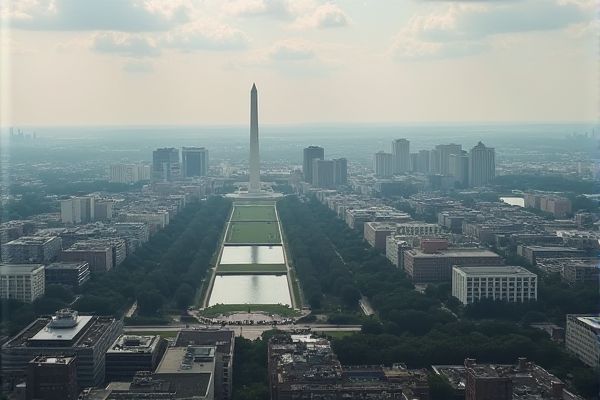
What to know as new resident in Washington: Weather variability and seasonal changes. Cost of living and housing prices. Public transportation options. Traffic congestion and commuting patterns. State tax policies. Local education system rankings. Diverse cultural and recreational activities. Environmental consciousness and sustainability. Local healthcare facilities. Popular local events and festivals.
Weather variability and seasonal changes.
Washington State experiences significant weather variability and seasonal changes, with coastal regions having an oceanic climate characterized by high precipitation and mild temperatures. In contrast, eastern regions are drier and colder due to the rain shadow effect of the Cascade Mountains. Seasons include a rainy winter, a spring with decreasing rains and cooler temperatures, a warm and sunny summer, and an autumn with mild temperatures and increasing precipitation. For more details about the seasonal shifts in Washington, visit the Seasons Year website.
Cost of living and housing prices.
As a new resident in Washington, you should be aware that the cost of living is 17% higher than the national average, with housing costs being 29% higher, while utilities are 7% lower. The statewide median sales price for a single-family home is around $695,100, with significant variations across different counties, and cities like Seattle have even higher median housing prices at $999,300. For a detailed understanding of living costs and expenses, you can explore the Washington Cost of Living Calculator which provides valuable insights into these financial aspects.
Public transportation options.
As a new resident in Washington, you can utilize various public transportation options including buses, light rail, commuter trains, ferries, and paratransit services, all of which can be paid for conveniently using an ORCA card. Services are provided by multiple transit agencies such as King County Metro, Sound Transit, and Washington State Ferries, with options for riders with disabilities and park-and-ride facilities for those who need to drive to a transit stop. For more comprehensive information, you can explore the Use Public Transportation guide available online.
Traffic congestion and commuting patterns.
As a new resident in Washington, particularly in the Seattle area, you should be aware that traffic congestion is severe, with Seattle ranking 27th globally and 10th in the U.S. for worst traffic, resulting in an average of 58 hours lost per driver in 2023. Commuting patterns have shifted, with midday trips increasing and a new peak hour emerging around noon, in addition to traditional morning and evening rush hours. For a more detailed analysis of these patterns, visit the Komo News website, which provides insights into how transportation dynamics are evolving in the Seattle region.
State tax policies.
As a new resident in Washington, you should know that the state has no personal income tax, but it does have a 7% capital gains tax on profits exceeding $250,000 from the sale of stocks, bonds, and other non-retirement assets, with exemptions for real estate, retirement accounts, and certain other assets. The revenue from this tax funds childcare, early learning, and education services, and the tax system has been made slightly more equitable with recent policy changes.
Local education system rankings.
Washington ranks fourth in the U.S. for Public Education in 2024, achieving high scores in teacher salaries, grant aid per student, and various national rankings in K-12 performance. Despite these impressive achievements, the state faces challenges in school safety and student outcomes in certain subjects. For more detailed information, you can visit this Washington Public Education Study which provides an insightful analysis of the current educational landscape.
Diverse cultural and recreational activities.
As a new resident in Washington, you can engage with diverse cultural activities through the Center for Washington Cultural Traditions, which supports folk and traditional arts, hosts various cultural events, and offers programs like the Heritage Arts Apprenticeship Program to preserve and promote local cultural heritage. Washington State Parks also offer a range of recreational and cultural activities, including festivals that celebrate the music, dance, food, and heritage of diverse communities, providing opportunities to connect with the state's natural, cultural, and artistic heritage.
Environmental consciousness and sustainability.
As a new resident in Washington, it's important to understand the state's strong commitment to environmental consciousness and sustainability, particularly in managing Water Resources, addressing climate change, and protecting natural environments to meet the needs of both people and the environment. The state is also a leader in clean energy initiatives, aiming for 100% clean electricity by 2045 and implementing various policies to reduce emissions and promote sustainability.
Local healthcare facilities.
In Washington, Assisted Living Facilities (ALFs) are regulated by the Department of Social and Health Services (DSHS), ensuring the health, safety, and well-being of residents. They provide essential services such as room and board, assistance with activities of daily living, and limited nursing services. These facilities operate under strict guidelines on resident assessments, service planning, and health support services. You can learn more about the comprehensive regulatory framework by visiting the official website of the Department of Social and Health Services, which outlines the standards and expectations for ALFs in Washington.
Popular local events and festivals.
As a new resident in Washington, you can look forward to a diverse array of annual events and festivals, including the Penn Cove Musselfest, Skagit Valley Tulip Festival, Seattle International Film Festival, Northwest Folklife Festival, and various fairs and cultural celebrations across the state. Each event offers unique experiences in music, food, arts, and community activities. To discover more about these exciting happenings, visit the Major Annual Events in Washington State website, where you can learn about the vibrant cultural tapestry that defines this beautiful region.
